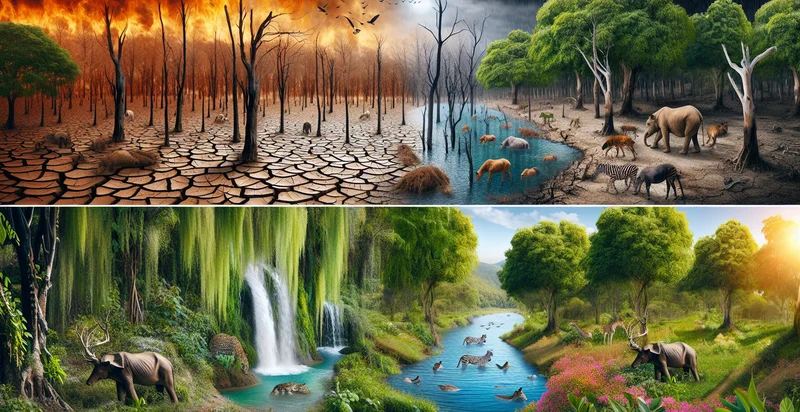Identify local climate impacts
using AI
Below is a free classifier to identify local climate impacts. Just input your text, and our AI will predict local climate impacts based on various environmental factors. - in just seconds.

Contact us for API access
Or, use Nyckel to build highly-accurate custom classifiers in just minutes. No PhD required.
Get started
import nyckel
credentials = nyckel.Credentials("YOUR_CLIENT_ID", "YOUR_CLIENT_SECRET")
nyckel.invoke("local-climate-impacts", "your_text_here", credentials)
fetch('https://www.nyckel.com/v1/functions/local-climate-impacts/invoke', {
method: 'POST',
headers: {
'Authorization': 'Bearer ' + 'YOUR_BEARER_TOKEN',
'Content-Type': 'application/json',
},
body: JSON.stringify(
{"data": "your_text_here"}
)
})
.then(response => response.json())
.then(data => console.log(data));
curl -X POST \
-H "Content-Type: application/json" \
-H "Authorization: Bearer YOUR_BEARER_TOKEN" \
-d '{"data": "your_text_here"}' \
https://www.nyckel.com/v1/functions/local-climate-impacts/invoke
How this classifier works
To start, input the text that you'd like analyzed. Our AI tool will then predict local climate impacts based on various environmental factors..
This pretrained text model uses a Nyckel-created dataset and has 27 labels, including Alpine, Arid, Coastal, Cold Desert, Continental, Damp Maritime, Desert, Drought-Prone, Flood-Prone and Highland.
We'll also show a confidence score (the higher the number, the more confident the AI model is around local climate impacts based on various environmental factors.).
Whether you're just curious or building local climate impacts detection into your application, we hope our classifier proves helpful.
Related Classifiers
Need to identify local climate impacts at scale?
Get API or Zapier access to this classifier for free. It's perfect for:
- Environmental Research: Researchers can utilize the 'local climate impacts' identifier to filter and analyze text from various sources, such as reports and articles, to assess local environmental conditions. This function helps in identifying specific climate-related issues impacting local ecosystems, thereby facilitating targeted studies.
- Sustainability Reporting: Corporations can employ the identifier to enhance sustainability reports by accurately categorizing textual data related to local climate impacts. This allows businesses to communicate their environmental efforts more effectively and demonstrate compliance with regulatory standards aimed at sustainability.
- Insurance Risk Assessment: Insurance companies can use the identifier to analyze claims and reports concerning local climate incidents. Understanding specific climate impacts on a community helps insurers evaluate risk profiles and adjust policies or rates accordingly.
- Urban Planning: City planners can leverage the 'local climate impacts' identifier to analyze urban development documents and proposals. By understanding how climate variables affect local areas, planners can create initiatives that promote climate resilience and sustainability in urban designs.
- Agricultural Management: Farmers and agricultural organizations can use the identifier to filter reports on climate impacts affecting farming practices in their regions. This information aids in adjusting crop choices and farming techniques based on projected climate effects, thereby optimizing yield and resource use.
- Community Awareness Programs: Non-profit organizations can apply the identifier to assess community-level documents and initiate awareness campaigns about local climate challenges. This helps in tailoring educational materials that resonate with community members and promote proactive climate action.
- Policy Development: Policymakers can use the 'local climate impacts' identifier to sift through large volumes of text related to climate policy discussions. By gaining insights into regional climate impacts, they can create more informed and effective legislation that addresses specific local needs and vulnerabilities.


